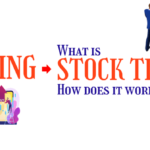Long-term investment is a good option for those looking to invest their savings or income in a solid project. So, first you need to know about what the long-term investments are and how to pick the best one with your future goals. Stay with us to know about it.
Quick Insights
What is a long-term investment?
Assets that are intended to be held by an individual or company for more than three years are referred to as long-term investments. Stocks, real estate, and cash are some of the instruments used to facilitate such investments. Generally, long-term investors are willing to take on more investing risk in exchange for higher returns.
How to find good stocks for long-term investment?
The stock market has been on a growth path over the past 20 years of economic growth. However, an individual has to face certain compensations while investing in the stock market. But the stock market as a whole is not the same as individual stocks.
Even if the market as a whole rises, stocks can fall for a long period and never recover. So, if you are planning to invest in individual stocks, you must realize how to find stock for long-term investment.
Constant growth
Choose firms with a strong history of steady profit growth if you’re searching for a solid long-term investment. A company’s ability to be a smart long-term investment decision shows how effectively it can perform even in weak economic times. Long-term investors can count on steady profit growth from long-term winners that maintain their valuations for years or even decades.
Increased return on equity
While various factors can move a stock’s price in the short term, profits drive long-term gains. A company’s exceptional success may justify an exceptionally high return on equity (ROE) if net income is extraordinarily high relative to equity.
On the other hand, an exceptionally high ROE frequently results from a small equity account relative to net income, which suggests risk.
Minimal debt amounts
When the economy is struggling, businesses with large debt loads may discover that their payments for debt servicing exceed their income. Conversely, businesses with little debt can withstand any economic downturn.
Although highly leveraged businesses might turn a profit during good times, long-term sustainability often does not need this kind of “boom or bust” strategy.
Solid management
It is possible for a business that provides a good product or service that is in high demand by consumers not to always be profitable, or profitable at all. Delivering quarterly results and steady growth that catches investors off guard still requires a strong management team.
Even poorly performing organizations can become industry leaders with competent management teams.
A rising dividend
Companies that pay dividends frequently raise their payouts over time to keep up with growing expenses, thus dividend payments can also help safeguard against inflation. When doing this, investors may be able to guarantee a consistent income stream that appreciates in value over the long term.
Selection of in-Demand items
Even if a stock might rise significantly based on a single profitable concept, companies that provide good returns for decades often have a wide range of popular items.
Since gains in one sector sometimes offset losses in another, multi-brand corporations typically have more consistent financial reports. Consequently, stock prices tend to be less erratic, and long-term returns are typically more predictable.
Seeking liquidity
Liquidity is a factor that needs to be emphasized even if you are investing for the long term. Compared to illiquid equities, liquid stocks attract more buyers and sellers and provide more trading possibilities.
Keep aware of the volatility
Volatility is an investment term used to define unpredictable and sometimes sharp fluctuations in prices in a market or securities. Because extremely volatile equities are difficult to forecast, trading them might result in significant losses.
Find good communication options
Due to their tendency to track the upward movement of an index or sector, stocks with strong correlations to major indices or sectors are often safer investments.
Follow the market trends
In general, stock market trends are accurate predictors of the direction that your stock is likely to travel. Look out for potential stock opportunities.
Research is essential
An irreconcilable fundamental need is research. It is an essential imperative. Even if the market is swinging wildly or not in your favor, you can depend on in-depth technical analysis to recover or prevent losses.
Why is investing in long-term assets important?
- Over time, investments like stocks and equity mutual funds have traditionally yielded greater returns in comparison to short-term investments.
- These options present the opportunity for increased capital value and better profits, particularly in times of economic expansion.
- A long-term investment decision horizon allows one to withstand temporary market fluctuations.
- It gives your capital enough time to generate returns and appreciate without being negatively affected by volatile price changes.
- If your stocks take a temporary dip in the short term, they are likely to recover over time. Extended tenure gives you the chance to maximize your money’s worth.
- The longer you stay invested, the more returns you can generate with compounding.
Conclusion
An investment with a long duration demands periodic reviews. Because conditions vary with time. You may avoid losses and maintain your investments in order with your objectives by doing a review. Investing for the long term offers several benefits.
You can maintain your financial stability and progress toward financial freedom by following the right steps. With all investments, there are risks as well as benefits. So choosing the right investment decisions for you and investing will help grow your future economy.
Pro Tip
You may advance your stock trading profession with the aid of an appropriate trading plan, perseverance, expertise, and a few crucial tools like internet reports and real-time market updates. Our trusted forex broker will help you with that. With us, you can gain knowledge not only in long-term investment but also in stocks, bonds, cryptocurrencies, forex, and many more.
FAQ – Frequently Asked Question
1. Is long-term investing worth it?
Investing is one of the finest methods to safeguard your financial future, and long-term investing is one of the best strategies to do so. A long-term approach is an effective strategy that many investors may profit from.
2. What is a long-term investment portfolio?
An investment portfolio is a collection of financial assets that includes commodities, cash and cash equivalents, stocks, bonds, money market instruments, and more. Long-term investors often don’t mind taking on extra risk tolerance in exchange for bigger returns.
Selecting asset classes that can diversify portfolio is made simple using ETFs and mutual funds, but you should be aware of trading charges and other hidden expenses.
3. Who is considered long-term investors?
To potentially earn higher long-term profits, a long-term investor takes on more short-term risk. In general, successful long-term investments may be different from short-term ones by keeping them for at least five years. When you sell long-term investments, you have to pay long-term capital gains taxes.
4. What are the disadvantages of long-term investments?
- Your capital is stagnant for a long time. Hence, there is liquidity shortage.
- Long-term returns are very low because long-term returns are more consistent and less risk-taking.
- Long-term investing requires a lot of patience as it involves a long-term commitment.
- If you want access to a successful long-term investment, you can’t get cash for an emergency.
5. What is the difference between short-term and long-term investment?
Long-term investments are held for more than a year, but short-term investments are often held for less than a year.
Long-term investments can yield consistent returns over a long period, but they need patience as well as dedication. Conversely, short-term investments have higher risk tolerance and need active management, but they also provide more liquidity and the possibility of quick profits.




